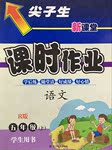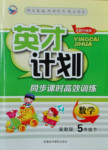题目内容
【题目】It was not until we came back from outside _________ out of his bed.
did he get B. when he got
C. that he got D. then he got
【答案】C
【解析】句意:直到我们从外面回来他才从床上爬起来。考查 not. . . until 的强调句式。It is/was not until. . . that. . . 直到……才……。

练习册系列答案
 尖子生新课堂课时作业系列答案
尖子生新课堂课时作业系列答案 英才计划同步课时高效训练系列答案
英才计划同步课时高效训练系列答案
相关题目